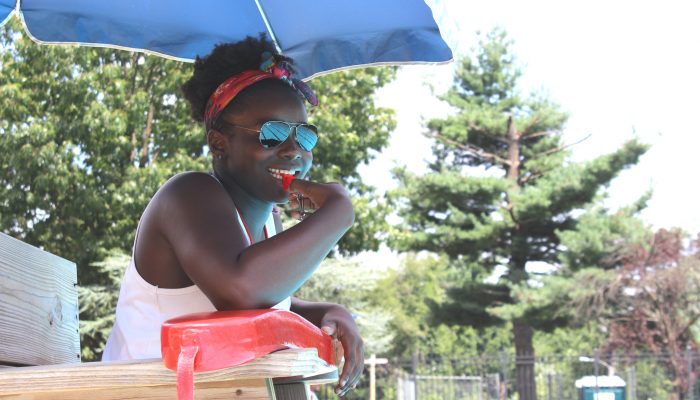Lifeguarding in Paradise: Pinellas County Seeks Heroes for 2025 Beach Season

A Call to Guardians of the Gulf
As Florida’s sun-drenched shores prepare to welcome millions of visitors in 2025, Pinellas County has issued a powerful call to action: become a lifeguard and protect paradise. With lifeguards being the backbone of beach safety, the county is offering seasonal opportunities at its picturesque Fort De Soto and Sand Key beach parks. This isn’t just a job—it’s a chance to be a vital part of the community and save lives while soaking up the sun.
From April to September, these lifeguards will act as first responders, water safety educators, and public protectors. If you thrive under pressure, enjoy outdoor work, and want to contribute meaningfully, this could be your perfect seasonal role.
Source: Inspired by and based on official announcement from Pinellas County
What’s in It for You?
While many seasonal jobs revolve around repetitive tasks, lifeguarding offers a dynamic, purpose-driven experience. Pinellas County recognizes the critical nature of this role and compensates accordingly. New lifeguards start at $19.25 per hour, and returning senior lifeguards can earn up to $20.86 per hour, with additional pay boosts for those holding Emergency Medical Technician (EMT) certifications.
Work schedules are designed with flexibility in mind. Lifeguards may work 10-hour shifts, offering both full-time and part-time options. This makes it an excellent gig for college students, teachers on break, or anyone seeking meaningful seasonal employment.
Beyond the Paycheck: Why This Job Matters
Drowning remains a leading cause of unintentional death, particularly among young children and tourists unfamiliar with local waters. Lifeguards reduce the chance of drowning by up to 93% at supervised locations. By becoming one of Pinellas County’s lifeguards, you’re not just monitoring waves—you’re literally saving lives.
In areas like Fort De Soto Park, which hosts thousands of beachgoers on a daily basis, vigilance and quick decision-making are key. The role requires physical stamina, emotional intelligence, and clear communication. This is not a job where you sit back and relax—it’s a calling for those who want to make a difference.
What It Takes to Be a Lifeguard
Pinellas County has clear, rigorous standards for applicants, ensuring that every lifeguard is equipped to handle emergencies with professionalism and poise. Here’s what you’ll need to qualify:
- A lifeguard certification from the American Lifeguard Association or equivalent experience/training.
- CPR/AED and First Aid certification that is current.
- Ability to swim 500 meters in under 10 minutes.
- Capability to run a half-mile in under 4 minutes.
- Successful completion of a 40-hour training provided by the county.
- Minimum age of 18 on your first workday.
- Flexibility to work weekends, holidays, and disaster response periods.
- A valid U.S. driver’s license.
This may seem intense—and it should be. The beach can be unpredictable, and your readiness could mean the difference between life and death.
Experience and Skills That Make You Stand Out
While the above requirements are mandatory, some qualifications will give you an edge over other applicants:
- EMT, paramedic, or first responder certification.
- Three or more months of professional lifeguard experience.
- Strong communication skills for handling distressed guests, coordinating rescues, and educating the public.
These additional credentials not only enhance your eligibility but can also lead to higher pay and leadership roles within the Beach Patrol team.
More Than Just Watching the Water
Modern lifeguarding goes beyond scanning the horizon for swimmers in trouble. In Pinellas County, lifeguards are also trained to handle:
- First response for medical emergencies, including heatstroke, jellyfish stings, or cardiac arrest.
- Public interaction and education, guiding beachgoers on safe swim zones and wildlife warnings.
- Evacuation protocols during severe weather or hazardous conditions like red tide outbreaks.
In this role, you develop a wide skill set that prepares you for future careers in emergency services, healthcare, law enforcement, and more.
Lifeguarding as a Launchpad
This opportunity isn’t just seasonal—it’s transformational. Many former lifeguards have gone on to become firefighters, paramedics, and even physicians. The experience builds endurance, discipline, and teamwork, setting a strong foundation for professional and personal growth.
Lifeguards also develop leadership skills, decision-making under pressure, and public communication—qualities that are invaluable in any career.
If you’re a student in health sciences, sports medicine, or criminal justice, a season as a lifeguard will provide hands-on field experience that you simply can’t learn in a classroom.
How to Apply
The application process is straightforward. Visit the official Pinellas County careers portal at to view open positions, eligibility details, and submit your application.
Veterans, active service members, and their families are encouraged to apply, with preference and priority given as part of Florida’s commitment to supporting those who have served.
If you’re passionate about making your summer count and helping your community in a meaningful way, this is the opportunity you’ve been waiting for.
Answer the Call. Become a Lifeguard.
Pinellas County is looking for more than swimmers. They want protectors, leaders, and advocates for safety. As tourism surges and beach attendance reaches record highs, your presence could be what turns a potential tragedy into a story of triumph.
This season, trade the office for the ocean and the cubicle for the coastline. Join the ranks of those who protect Florida’s greatest natural treasure—its beaches—and the lives of those who enjoy them.
Don’t just work this summer—serve, protect, and make an impact.
Author Bio
Harlan Elio is a writer and creative professional passionate about public service, emergency readiness, and youth development. With a keen interest in community engagement and outdoor careers, he explores how seasonal roles like lifeguarding can shape futures and save lives.




